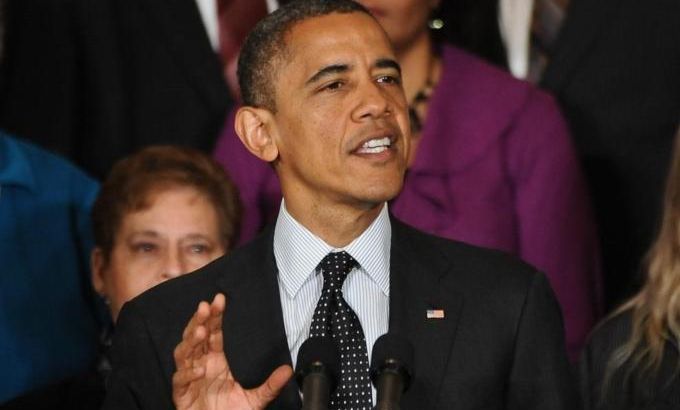Obama sets White House meeting on deficit
In first post-election comments, US president claims mandate to raise taxes on wealthy Americans to reduce the deficit.

US president Barack Obama will invite Republican and Democratic leaders to the White House next week for negotiations about cutting the deficit and averting a series of automatic spending cuts and tax hikes which could plunge the US economy back into recession.
“I’m not wedded to every detail of my plan. I’m open to compromise,” he said on Friday in a statement, his first since winning re-election on Tuesday. “I’m committed to solving our fiscal challenges, but I refuse to accept any approach that isn’t balanced.”
Keep reading
list of 4 itemsParallel economy: How Russia is defying the West’s boycott
US House approves aid package worth billions for Ukraine, Israel
Ecuador weighs security, international arbitration in latest referendum
The president said that lawmakers should pass a bill which would prevent tax cuts enacted by his predecessor, George W. Bush, from expiring for all but the wealthiest Americans.
That would preserve tax cuts for about 98 per cent of the country, Obama said.
He described his win on Tuesday as proof that a majority of Americans agree with his approach. “If we’re serious about reducing the deficit we have to combine spending cuts with revenue,” the president said. “That means asking the wealthy to pay a little more in taxes.”
Avoiding the ‘fiscal cliff’
But he will face a difficult battle in Congress, particularly in the House of Representatives, the lower legislative body, which is still controlled by the Republican party.
House speaker John Boehner said on Friday that he would oppose any legislation which includes tax increases. “Raising tax rates will slow down our ability to create the jobs that everyone says they want,” he said.
Boehner suggested that the government instead raise revenue by closing loopholes in the tax code.
Mitt Romney, the defeated Republican presidential candidate, proposed a similar plan, but refused to outline exactly which loopholes he would close. Many independent economists said his plan would only make a negligible difference in reducing the $1.2 trillion federal deficit.
The package of spending cuts and tax increases – dubbed the “fiscal cliff” in American media – will automatically take effect on January 1. It amounts to $800bn in the first year alone, and $7 trillion over the next decade.
The Congressional Budget Office predicted this week that the economy would fall back into recession if the changes are not stopped. The unemployment rate, currently 7.9 per cent, could surge back up to 9.1 per cent by next autumn, the agency predicted.